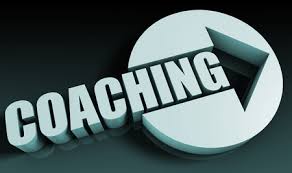Mistake #31
USING THE CLIENT TO MEET YOUR EMOTIONAL NEEDS
If you're really getting too excited about your client's successes, you may be meeting your own needs through their success.
It's all very well to feel happy for your customer, but if your mood gets too upset (both for better and for worse), you'll be eliciting personal needs from your customer.
Remember, your Coaching “ends” at the end of each session. The results are a great byproduct.
bug 32
NEED RECOGNITION FOR CUSTOMER SUCCESSES
Coaches never really know exactly how much their coaching contributes to client success.
I find it easier not to seek credit for my client's success than to try to find out what a difference my Coaching has made to my client.
I used to feel left out when clients didn't appreciate or recognize the value of my role/wisdom, but that was just me.
Be happy for your client; do not seek recognition, even if your role has been absolutely key to their success.
Bug #33
USING JARGO AND CLICHES
We all use jargon and cliches to some degree, so it's simply a matter of frequency.
The problem with personal development jargon is that you confuse the other party and weaken your speech by hiding behind the jargon.
Replace your jargon with simple words and replace your clichés with fresh advice.
Jargon annoys people and clichés make you look silly.
bug 34
FALLING INTO THE TRAP: “I am the Coach; you the client; listen to me"
This is a power struggle.
Some clients like it or need it, but then it is “solving” Coaching and it can create dependency.
If the client resists, find out why or work with a simpler goal.
Modern Coaching is a collaborative partnership.
bug 35
UNDERESTIMATING CLIENT SKILLS
My view is that humans operate at the 20% of their capacity – creative, intellectual, emotional, spiritual – so there is a lot of potential left!
I demand much more from my clients than they would ask themselves and I keep asking until they say enough – you never know how much a client can do until you push them beyond their “limits”.
Don't play God and ask them only what you think they are prepared to do. bad formula.
bug 36
EXPECT TOO MUCH FROM THE CUSTOMER
How much should/can you expect from the client? If you don't know, ask him, he will tell you.
I found that I often expected my clients to be as quick as me in making big changes in minutes.
I got frustrated and my clients got stressed.
Each client has their own natural rhythm that they can manage and maintain. Find out what it is and adjust your coaching expectations accordingly. Or, find out if the client wants to speed up this pace as a coaching goal in itself.
Mistake #37
TEACH CONCEPTS WITHOUT CONTEXT
• How can you teach attraction without teaching "personal fundamentals"?
• How can you teach love without acceptance and forgiveness?
• How can you teach success without gratitude?
• How can you teach strategy without vision?
• How can you teach Coaching without wisdom?
Whatever you teach, include the context that gives it meaning.
bug 38
IGNORE / DO NOT PICK UP CLIENT CLUES
Clients will tell you everything you need to know about them and what is most important to them, if you learn to listen and identify it instead of doing so much Coaching.
Listening tracks:
• Trivial comments – the truth lies behind them.
• Euphemisms – the truth is the opposite of what is said.
• Silence – the truth is there; waiting to be articulated.
• Dissonances – the truth is one or the other.
When in doubt, ask the client to keep talking until something clears up and becomes apparent.
Mistake #39
ACCEPT EUPHEMISMS AS TRUTHS
Clients sometimes lighten up and give a positive tone to things they don't want to discuss with their Coach, but it is the Coach's job to spot this nuance and ask their Client about it.
Remember, Coaches are in the “truth” business; anything less will diminish the value of coaching.
If you don't get what the client is saying, don't shut it up, ask them to be clearer. Often they themselves want you to be the one to detect it and bring it up.
Error #40
USING A PATERNALISTIC/CONDESCENDING TONE
The tone of some Coaches is not clean and clear. It carries with it a burden or heaviness, which interferes with clean communication.
Sometimes a Coach takes on a condescending tone, speaking to clients as if they were children or fools.
Do you recognize yourself? You won't know unless you ask 5 clients and 5 colleagues the following: Is there some paternalism and condescension in my speech?

